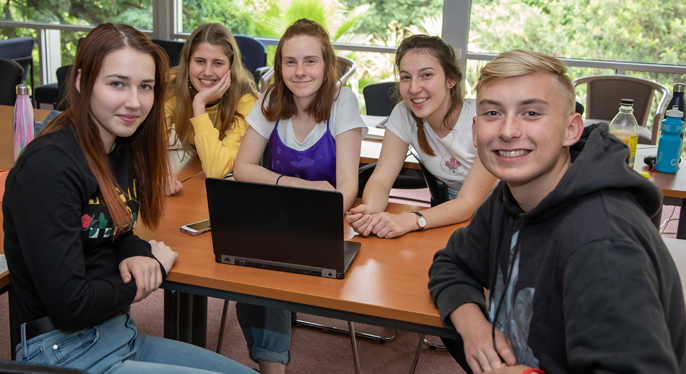Each year, teams of young linguists from around the world gather and test their minds against the world’s toughest puzzles in language and linguistics. The Olympiad furthers the fields of mathematical, theoretical and descriptive linguistics and winners from around the world will gather in Yongin, South Korea, for the International final in August.
Around 15 BSSC English Language students met in the Conference room this afternoon to pit their skills against students from all over the country in The Computational and Linguistics Olympiad.
Teacher, Kathryn McDiven, sees the competition as having multiple positives.
“It’s a way of broadening the curriculum and linking into things that are happening elsewhere,” she said. “It’s also been great for connecting students from different classes and creating a great sense of team spirit.”
For the students, the competition presents an array of challenges. They have two hours to use a language they have never seen before—because it is either no longer in use (such as hieroglyphics) or it’s spoken by very few people in an area too remote to be familiar to Australian students.
Eve is excited about extending her problem-solving skills, while Ieuan is in it for the challenge and also looking for a glimpse into the way the world is presented through alternative languages.
“I think it’s an interesting competition,” said Zac, who organised BSSC’s registration. “I like studying English Language because it’s a more analytical approach which works well for me because I’m interested in physics and business.”
Cody agreed. “I enjoy English Language and, although I’ve never done anything like this before, I like science and this decoding of languages we’ve never seen is like using the science of language. I hope to study science and education in future.”
For Jacob, it’s the fun of putting his English skills to the test.
“Like the others, it’s the logical approach I enjoy. I really like computer science and physics too—I might even become an astrophysicist.”











